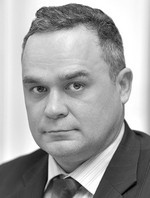11-13 year-old judokas' psychomotor ability tests and analyses
Фотографии:
ˑ:
Fizicheskaya kultura: vospitanie, obrazovanie, trenirovka №4-2017, pp.34-36
A.A. Khorunzhiy
Smolensk State College (Technical School) of Olympic Reserve, Smolensk
The study analyses the research data indicative of the psychomotor progress of junior judokas. The mental and physiological progress tests including the simple visual motor response, differentiating response tests and some other tests serve as valuable tools in the pre-season training process. Generally the tests found low psychomotor ability rates in the 11-13 judokas that largely slow down the junior athletes’ harmonized development process and competitive progress.
The study data and analyses showed that the junior judokas’ education and training systems need to give a higher priority to the experimental physical training and health improvement technologies designed to speed up the psychomotor ability development processes to both facilitate their progress in motor techniques and help them better cope with the training process loads.
Keywords: judo, junior athletes, psychomotor abilities, tests, simple visual motor response, functional abilities.
References
- Bobylev S.V. Kompleksnaya otsenka sostoyaniya trenirovannosti dzyudoistov. Avtoref. dis. kand. ped. nauk [Integrated assessment of judokas' fitness state. PhD diss. abstract]. Moscow, 1987, 24 p.
- Loskutova T.D. Otsenka funktsionalnogo sostoyaniya tsentralnoy nervnoy sistemy cheloveka po parametram prostoy dvigatelnoy reaktsii [Simple motor reaction characteristics to rate functional state of central nervous system]. Fiziologicheskiy zhurnal SSSR, 1975, vol. 61, no. 1, pp. 3-12.
- Marinich V.V., Guba V.P. Kompleksnaya psikhologo-pedagogicheskaya otsenka effektivnosti uchebno-trenirovochnogo protsessa v professionalnom sporte: sovremennye podkhody [Integrated psycho-pedagogical assessment of professional sports training process efficiency: modern approaches]. Zdorovye dlya vsekh, no. 1, pp. 45-49.
- Marinich V.V., Khorunzhiy A.A., Guba V.P. Monitoring funktsionalnogo sostoyaniya yunykh sportsmenov v edinoborstvakh [Monitoring of functional state of junior martial artists]. Mater. Vseros. nauch-prakt. konf., posvyashch. 90-letiyu zhurnala «Teoriya i praktika fiz. kultury" "Sportivnaya nauka Rossii: sostoyanie i perspektivy razvitiya" [Proc. Rus. res.-practical conf. ded. to 90th anniversary of the journal "Teoriya i praktika fiz. kultury" "Sport science in Russia: state and development prospects"], 2015, pp. 436-439.
- Pashintsev V.G. Tekhnologiya proektirovaniya mnogoletney podgotovki dzyudoistov. Avtoref. dis. dokt. ped. nauk [Long-term training design technology for judokas. Doctoral diss. abstract (Hab.)]. Moscow, 2001, 54 p.
- Sirotin O.A. Psikhologo-pedagogicheskie osnovy individualizatsii sportivnoy podgotovki dzyudoistov. Avtoref. dis. dokt. ped. nauk [Psychological and pedagogical basics of individualization of athletic training in judo. Doctoral diss. abstract (Hab.)]. Moscow, 1996, 49 p.
- Surkov E.N. Psikhomotorika sportsmena. Nauch. izdanie [Athlete's psychomotoric system. Scientific Publication]. Moscow: Fizkultura i sport publ., 1984, 121 p.
- Tumanyan G.S. Shkola masterstva bortsov, dzyudoistov i sambistov. Uchebnik [School of mastery for wrestlers, judokas and sambo wrestlers. Textbook]. Moscow: Akademiya publ., 2006, 592 p.
- Fomin N.A. Adaptatsiya: obshchebiologicheskie i psikhofiziologicheskie osnovy [Adaptation: general biological and psychophysiological basics]. Moscow: Teoriya i praktika fiz. kultury, 2003, 383 p.
- Khorunzhiy A.A. Analiz sensomotornogo sostoyaniya yunykh sportsmenov-edinobortsev [Analysis of sensorimotor state of junior martial artists]. Mater. X Mezhdunar. nauch.-prakt. konf. "Sportivnye igry v fizicheskom vospitanii, rekreatsii i sporte" [Proc. res.-practical conf. "Sport games in physical education, recreation and sports"]. Smolensk, 2016, pp. 245-247.




 Журнал "THEORY AND PRACTICE
Журнал "THEORY AND PRACTICE